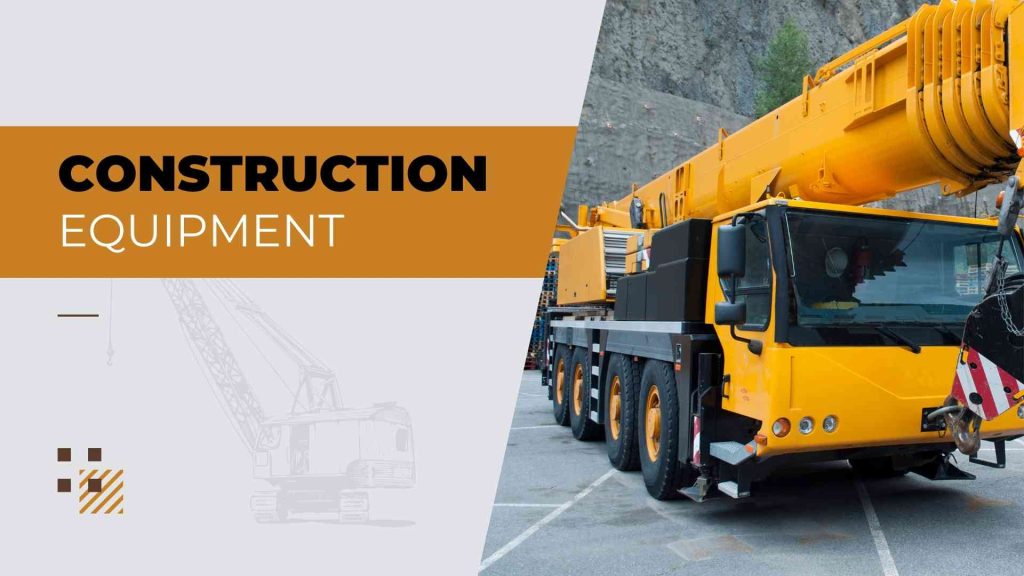The construction equipment distribution business plays a pivotal role in the global construction industry, facilitating the timely supply of machinery and tools to construction sites. In recent years, this sector has experienced significant changes driven by technological advancements, economic shifts, and environmental considerations. We will see the current trends and disruptions shaping the landscape of construction equipment distribution.
Digital Transformation
One of the most prominent trends in construction equipment distribution is the digital transformation of the industry. Traditional brick-and-mortar dealerships are increasingly expanding their online presence to cater to a growing base of tech-savvy customers. E-commerce platforms and digital marketplaces have become vital tools for equipment procurement, offering convenience, transparency, and a more comprehensive range of options. This trend has accelerated further after the COVID-19 pandemic as remote buying and contactless transactions gained prominence.
Rental and Leasing Services
Construction companies increasingly turn to rental and leasing options for their equipment needs. This shift allows businesses to access the latest machinery without the financial burden of ownership. Rental marketplaces and equipment-as-a-service models have gained traction, offering flexibility and cost-efficiency. Construction equipment distributors are adapting by diversifying their offerings to include rental and leasing services, expanding their customer base.
Sustainable Practices
Environmental concerns have spurred a growing interest in sustainable construction practices. Construction equipment distributors are responding by offering eco-friendly machinery, electric or hybrid equipment, and innovative solutions to reduce emissions and minimize environmental impact. Many construction companies now prioritize suppliers who can provide sustainable equipment options, thus driving changes in the distribution sector.
Telematics and IoT Integration
Integrating telematics and the Internet of Things (IoT) technology has revolutionized equipment management. IoT-enabled sensors and devices can monitor equipment performance, location, and maintenance needs in real-time. Distributors are incorporating telematics solutions into their offerings, providing customers with data-driven insights to optimize equipment utilization, reduce downtime, and enhance safety.
Supply Chain Disruptions
The construction equipment distribution business has not been immune to global supply chain disruptions, such as those caused by the COVID-19 pandemic. Delays in the manufacturing and transportation of equipment have led to supply shortages and inflated prices. Distributors have had to adapt by diversifying their sources, improving inventory management, and investing in resilient supply chains to mitigate the influence of future troubles.
Regulatory Changes
Changing regulations, mainly related to emissions standards and safety requirements, significantly impact construction equipment distribution. Distributors must stay abreast of evolving regulations and ensure that the equipment they provide complies with these standards. Adherence to regulations can often lead to increased costs, which may be passed on to customers.
Autonomous and AI-driven Equipment
The construction industry is witnessing the emergence of autonomous and AI-driven equipment. While yet to be mainstream, these technologies can disrupt traditional distribution models. Distributors must stay informed about these advancements and consider how to integrate such equipment into their product offerings and service portfolios.
The construction equipment distribution business is profoundly transformed, driven by digitalization, sustainability concerns, and technological advancements. As construction companies seek greater efficiency, flexibility, and sustainability, distributors must adapt to these evolving trends and disruptions. By embracing digital tools, offering rental and leasing options, promoting sustainability, and staying agile in the face of supply chain challenges, construction equipment distributors can position themselves for success in this dynamic and ever-changing industry.
How Can Acumatica Help?
Acumatica cloud ERP for the Construction business offers substantial advantages by providing a comprehensive and integrated solution. Its real-time visibility into financials, project management, inventory, and equipment maintenance empowers organizations to streamline operations, reduce costs, and make data-driven decisions.
With the flexibility of cloud-based access, construction companies can enhance collaboration, increase efficiency, and effectively manage their equipment fleet, ultimately leading to improved profitability and competitiveness in the dynamic construction industry. Acumatica’s robust features and scalability make it a valuable tool for construction equipment management, enabling businesses to thrive in a rapidly evolving marketplace. Are you looking for Customized Cloud ERP Solutions for your Construction Business? Contact us for a Demo.

Vijay comes with a vast experience in ERP and enterprise solutions space with about 20 years of experience in various packaged application like Acumatica, SAP, Orion, Salesforce.com, SugarCRM and, SalesLogix.

